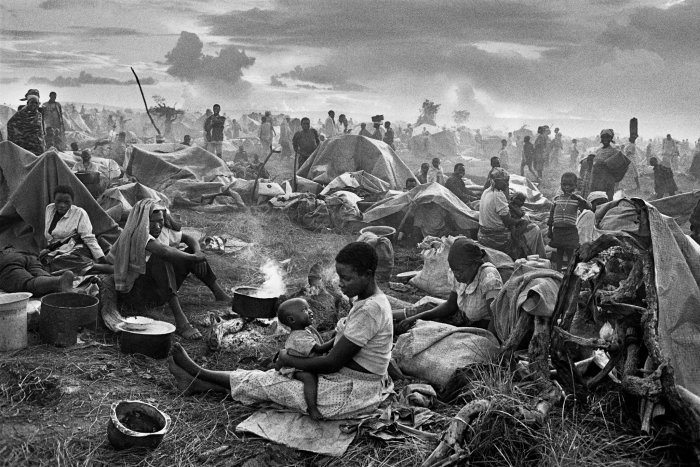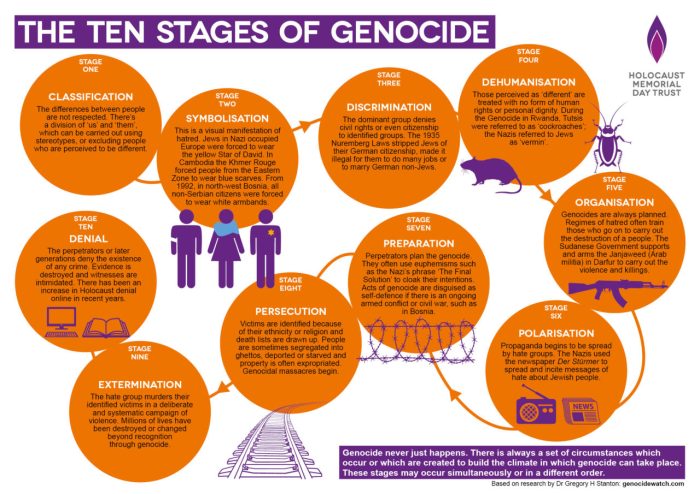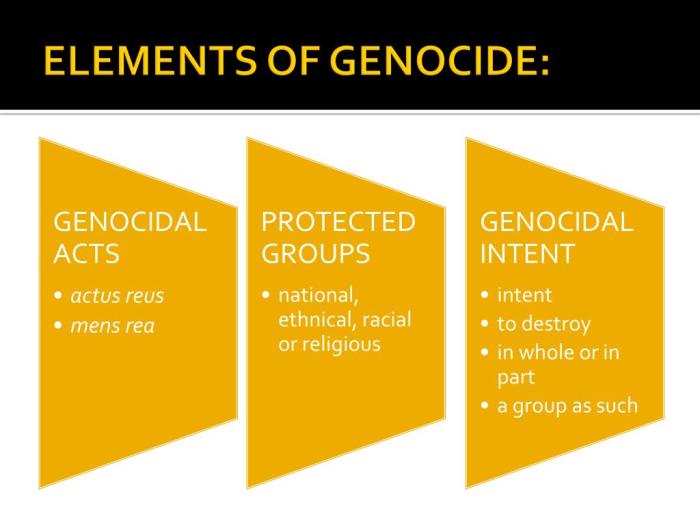Which action illustrates the concept of genocide? This question delves into the heart of a grave and complex crime that has left an indelible mark on human history. As we embark on this inquiry, we will explore the historical context, specific examples, intent and motive, acts and consequences, prevention and punishment, and case studies to illuminate the concept of genocide and its far-reaching implications.
The United Nations defines genocide as “acts committed with intent to destroy, in whole or in part, a national, ethnical, racial, or religious group.” This definition serves as the cornerstone of our understanding of genocide and guides our analysis of specific actions that constitute this heinous crime.
General Inquiries: Which Action Illustrates The Concept Of Genocide
What is the difference between genocide and mass murder?
Genocide is a specific crime under international law that involves the intent to destroy a particular group, while mass murder is a more general term that refers to the killing of a large number of people.
What are the consequences of genocide?
Genocide can have devastating consequences for individuals, communities, and entire societies, including loss of life, physical and psychological trauma, cultural destruction, and economic devastation.
How can genocide be prevented?
Preventing genocide requires a multifaceted approach that includes early warning systems, diplomatic intervention, peacekeeping operations, and the promotion of human rights and tolerance.



